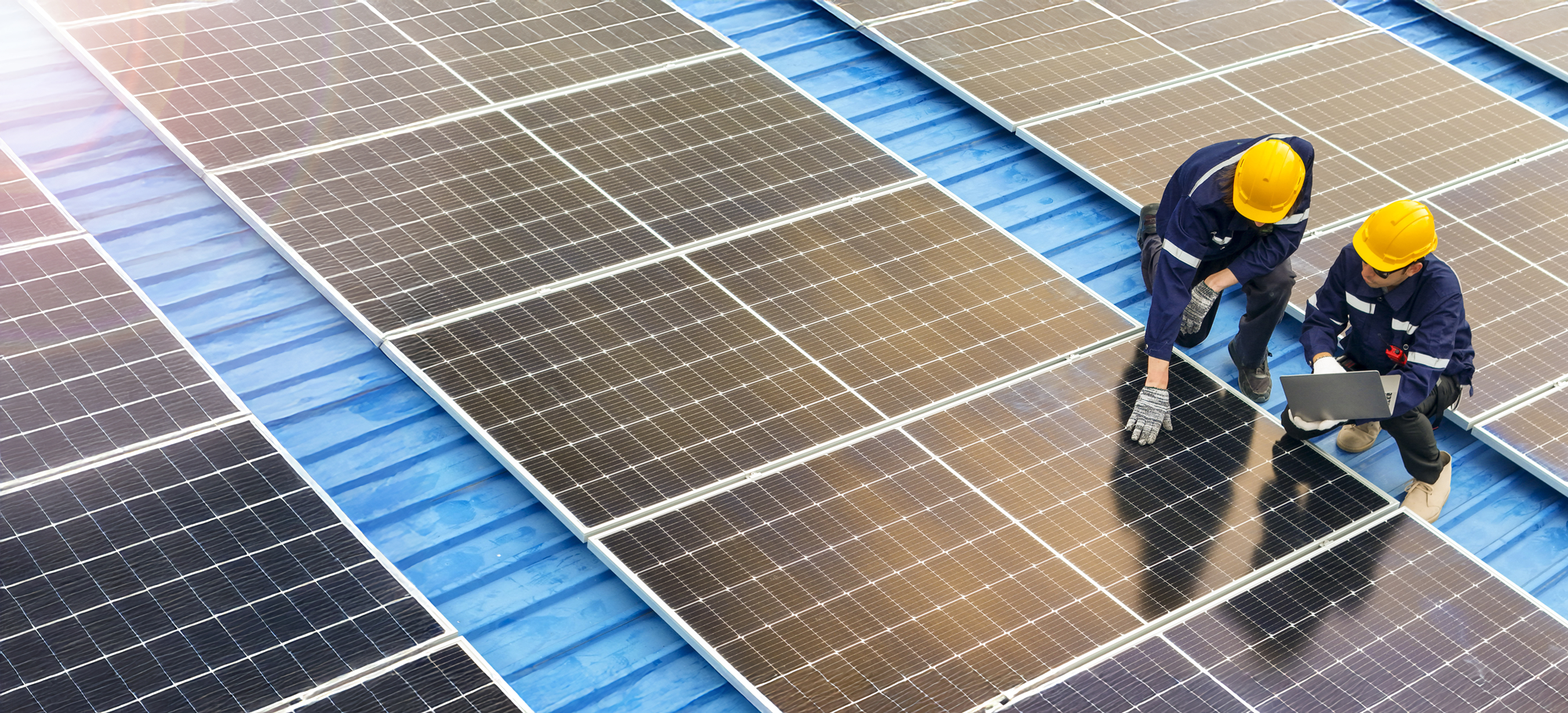How Industrial Solar Panels Will Shape the B2B Market Over the Next Decade
- 14 May 2025
- Articles
![]()
The energy sector's fundamental transformations are fueled by escalating power expenses, tightening eco-compliance mandates, and expanding corporate green initiatives. Rather than an optional upgrade, many industries have begun to view renewable energy as a strategic necessity to remain competitive. Industrial solar panels, in particular, are emerging as a game-changer for companies looking to future-proof their operations.
Over the next decade, these advanced solar power systems are envisioned to redefine how commercial enterprises generate, store, and manage energy. For a more in-depth discussion, continue reading this blog.
The Rise of Industrial Solar Panels in Commercial Applications
Industrial solar panels are becoming increasingly popular among businesses due to their scalability and efficiency. Engineered for heavy-duty performance, these industrial-grade systems far surpass residential models in capacity. They're specifically built to power commercial facilities, industrial complexes, and enterprise-level operations. With advancements in photovoltaic technology, companies can now generate substantial amounts of clean electricity while significantly lowering their carbon footprint.
Financial and Environmental Benefits for Businesses
Switching to industrial solar panels delivers measurable advantages that impact both profitability and sustainability:
1. Lower Operating Costs
Solar systems reduce grid dependence, instantly cutting electricity bills. With typical payback periods of several years, businesses lock in decades of predictable energy costs at fixed rates, insulating against utility price hikes. Also, maintenance is minimal, with most systems requiring just occasional cleaning and annual inspections.
2. New Revenue Streams
Through net metering programs, excess energy can be sold back to utilities at retail rates. Some states offer additional SREC (Solar Renewable Energy Certificate) payments for every MWh produced. Larger systems may qualify for wholesale energy market participation, creating ongoing revenue.
3. Tax Incentives
The 30% federal Investment Tax Credit (ITC) directly reduces tax liability. Aside from this, many states offer additional rebates, property tax exemptions, or sales tax waivers. These combined incentives can cover a considerable portion of total system costs.
4. Emission Reductions
Solar helps companies meet ESG goals and comply with tightening emissions regulations. Many corporations now require sustainable operations from suppliers, making solar a competitive advantage.
5. Energy Independence
When paired with storage, on-site generation provides backup power during grid outages. Businesses avoid demand charges and time-of-use rate fluctuations, which comprise a significant portion of commercial bills. Energy security also mitigates risks from geopolitical energy market volatility.
For forward-thinking companies, solar transforms energy from an expense into a strategic asset with compounding returns.

Key Considerations for Commercial Solar Adoption
Before investing in solar panel systems, businesses must evaluate several factors, including:
- Roof space and structural integrity: Adequate roof space is essential for optimal performance. A solar installation company can assess whether a building's structure can support the weight of commercial panels.
- Energy requirements: Understanding current energy consumption helps determine the right system size. Depending on energy needs, high-efficiency solar panels, such as monocrystalline or thin-film solar panels, may be recommended.
- Financing options: Many solar contractors offer instant financing options to help mitigate the initial investment. Meanwhile, if you want to avoid upfront costs, you can also consider leasing or power purchase agreements (PPAS).
- Maintenance and warranties: Solar panel warranties typically cover 25 years, ensuring long-term reliability. Routine maintenance ensures continued energy efficiency and peak performance.
By carefully evaluating these factors, businesses can implement solar solutions that deliver optimal energy output, financial returns, and operational resilience for decades to come.
Emerging Solar Technologies Reshaping Industrial Applications
The solar revolution is accelerating with breakthrough technologies that transform industrial energy strategies:
1. Building-Integrated Photovoltaics (BIPV)
These invisible solar solutions replace traditional materials in windows, facades, and roofing while generating power. BIPV maintains structural integrity while eliminating the need for separate panel installations.
2. Bifacial Solar Modules
By capturing sunlight on both sides, these panels boost energy output in optimal conditions. They perform exceptionally well in industrial settings with reflective surfaces like white roofs or parking lots.
3. Smart Solar Microgrids
AI-driven systems analyse weather patterns and energy demand in real-time to optimise consumption. They seamlessly integrate with industrial Iot devices to prioritise power for critical operations. During outages, these microgrids can be isolated from the primary grid while maintaining essential functions.
4. Floating Solar Farms
Ideal for industries with water reservoirs, these systems generate power while reducing water evaporation. They free up valuable land space and perform better due to natural cooling from water.
5. Perovskite Solar Cells
This next-gen technology promises better efficiency at half the cost of traditional silicon panels. Factories can apply them as lightweight, flexible coatings directly onto equipment surfaces.
These innovations demonstrate that industrial solar is no longer just about panels - it's about reimagining every surface and system as an energy opportunity.
Conclusion
Industrial solar panels will become essential for businesses seeking energy independence, cost savings, and sustainability in the next decade. With improving technology, favourable incentives, and rising energy costs, commercial solar installations offer an unbeatable return on investment while reducing carbon footprints. Companies that adopt these solutions now will gain a competitive edge, future-proof their operations, and lead the transition to a cleaner energy future.








